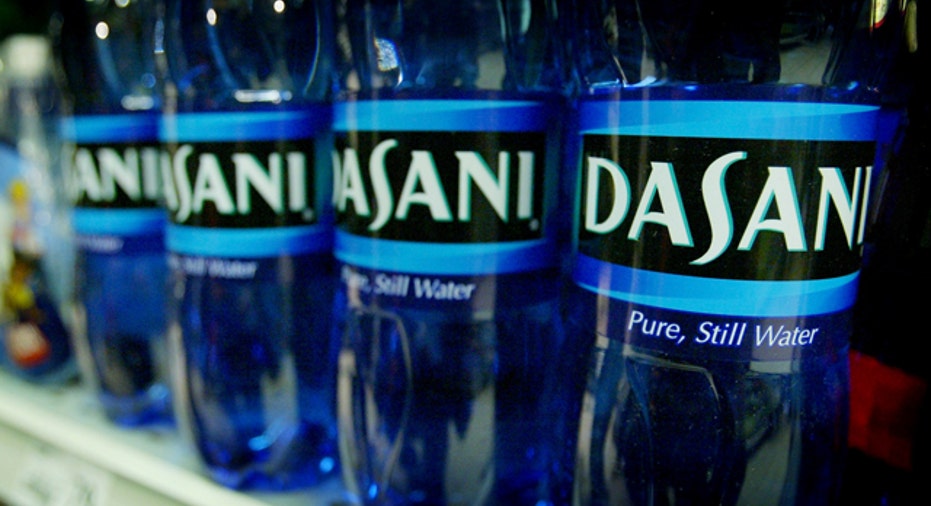University’s Ban on Bottled Water Stirs Controversy

If you become thirsty while on the University of Vermont campus, don’t bother looking for bottled water. This year, the school will become the first campus in the U.S. to completely restrict the sale of bottled water in vending machines and any food establishments. The university will spend the next year installing “filling stations” for reusable water bottles around campus, and by January 2013, the school will be completely single-use water bottle free.
The move comes as part of a healthy campus initiative that also mandates one-third of all drinks sold on campus be “healthy options,” like juice and tea, and no beverage offering can contain high fructose corn syrup. The university has been in contract with Coca-Cola of Northern New England for the last 10 years, which provided more than 1.1 million bottles of soda and water to the campus’ 57 vending machines, retail outlets and dining halls every year. That contract expires in May 2012, and the university will not renew it.
Gioia Thompson, sustainability director at the University of Vermont, says that the movement was started by students in the Vermont Student Environmental Program as an effort to reduce waste on campus. And she says the movement is already showing success: Sales of flat, unflavored water dropped 35% to 235,000 bottles in 2010 from 362,000 in 2007 on campus.
“We have already invested in our municipal drinking water and we have clean, safe water. We don’t need to be drinking out of single-use bottles that are just going to get thrown away,” Thompson says.
In order to encourage new students to adopt the policy, the school is looking into partnerships with companies that make reusable bottles.
“We need to work out ideas, but we are looking at the possibility of giving all new students and prospective students a reusable bottle when they come to campus,” Thompson says.
As for students who may use single-use plastic bottles they purchase off campus, the university will not act as “bottled water police.”
“We’re not going to be busting people if they’re drinking out of a plastic bottle they purchased elsewhere,” says Thompson. “But I just don’t think it’s appropriate for the university to provide it as a way to hydrate yourself. If we are pushing bottled water we are sending the message that the community can’t rely on tap water, and that’s wrong.”
Christopher Hogan, vice president of communications for the International Bottled Water Association (IBWA), says that school’s “healthy initiatives” seem a little contradictory.
“The fact that they have banned bottled water but are also saying that vending machines must be stocked with healthy beverages makes no sense. Bottled water has to be the healthiest thing you can put in a vending machine,” says Hogan. He adds that it also restricts the choices of campus visitors and interested students.
“They have eliminated a choice, and when you eliminate a choice, some people are inevitably going to see that as restrictive,” he says. “It’s an area of concern, because there are some people for whom bottled water is a very important choice. They may be immune compromised or diabetic and for medical reasons they will need to have a reliably consistent and safe beverage, and bottled water is specifically chosen for those reasons.”
Hogan said the percentage of people who need sterile water for medical reasons is certainly slim, but the point is that if a person needs it at the University of Vermont, they won’t be able to find it.
However, Thompson argues that bottled water isn’t always more sterile than tap water.
“Bottled water can contain bacteria and toxins just as easily as tap water,” she says. “People with health problems are aware what they need to do to take care of themselves, and we are going to have lots of different things to eat and drink on campus.”
For events like graduation that bring in visitors, the school plans to provide portable hydration stations with cups that can be composted. But the university will stand firm on its policy for no bottled water--even at its athletic complex.
“Most visitors to campus are coming in with a certain trajectory, and we can make sure there are opportunities to get water along their path through campus,” she says.
Hogan stresses that IBWA is not “in a fight with tap water.”
“Tap water is fine to drink,” he says. “But our argument is that the school is eliminating the healthiest choice in any packaged beverage. It’s unfair that they are making the choice for anyone who comes on campus: No one will have access to bottled water.”
One of the students who led the movement to eliminate single-use plastic bottles, Mikayla McDonald, says that more than 1,000 students signed the original petition calling for the banning of bottled water, and that the whole school is behind it. McDonald is a 2010 graduate, and served as president of the Vermont Student Environmental Program while enrolled.
“For me, the main problem with bottled water is that it represents a complete disrespect for the right to and absolute necessity for universal access to safe public drinking water. Privatization of a public resource for financial benefit of a few wealthy corporations is wrong,” says McDonald.
Single-serving plastic-packaged bottled water is one of those products which has a 100% manufactured demand, she says.
“There was essentially no need or want for it until bottled water companies started spending billions of dollars on advertising.”



















